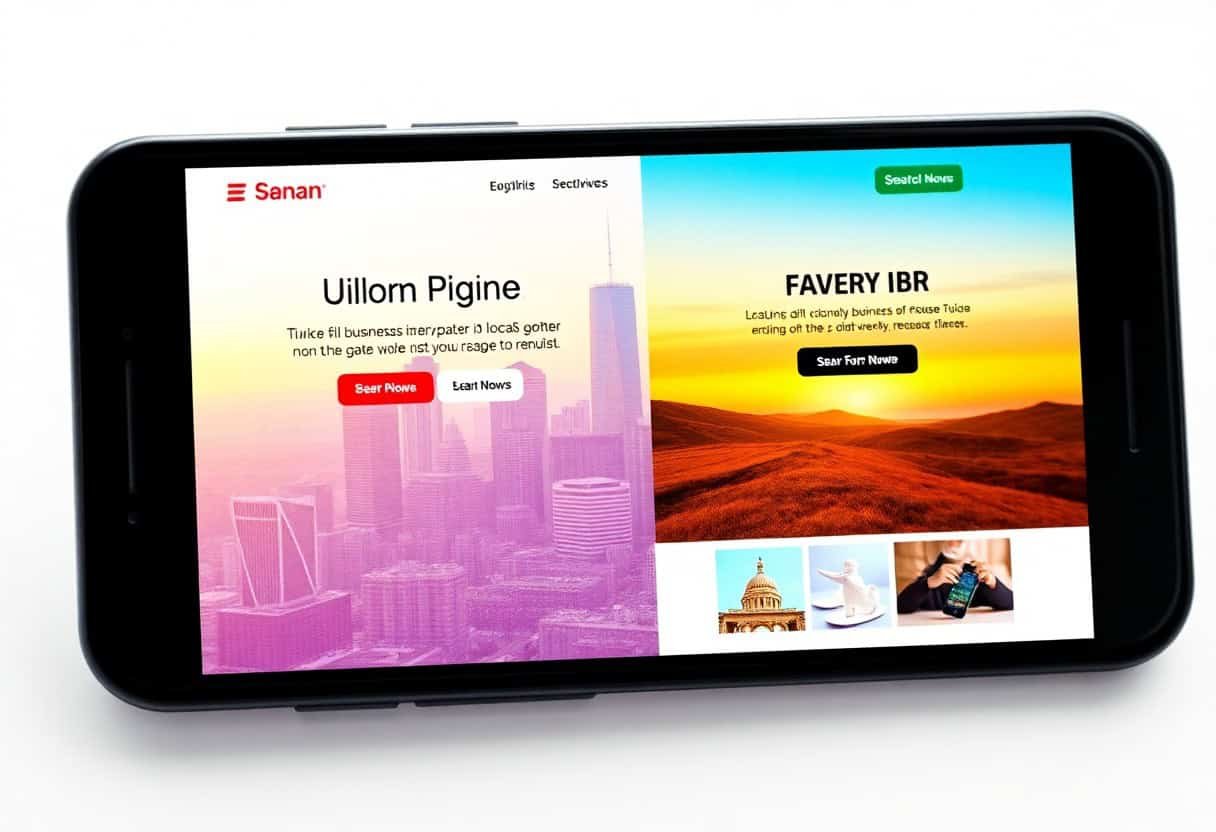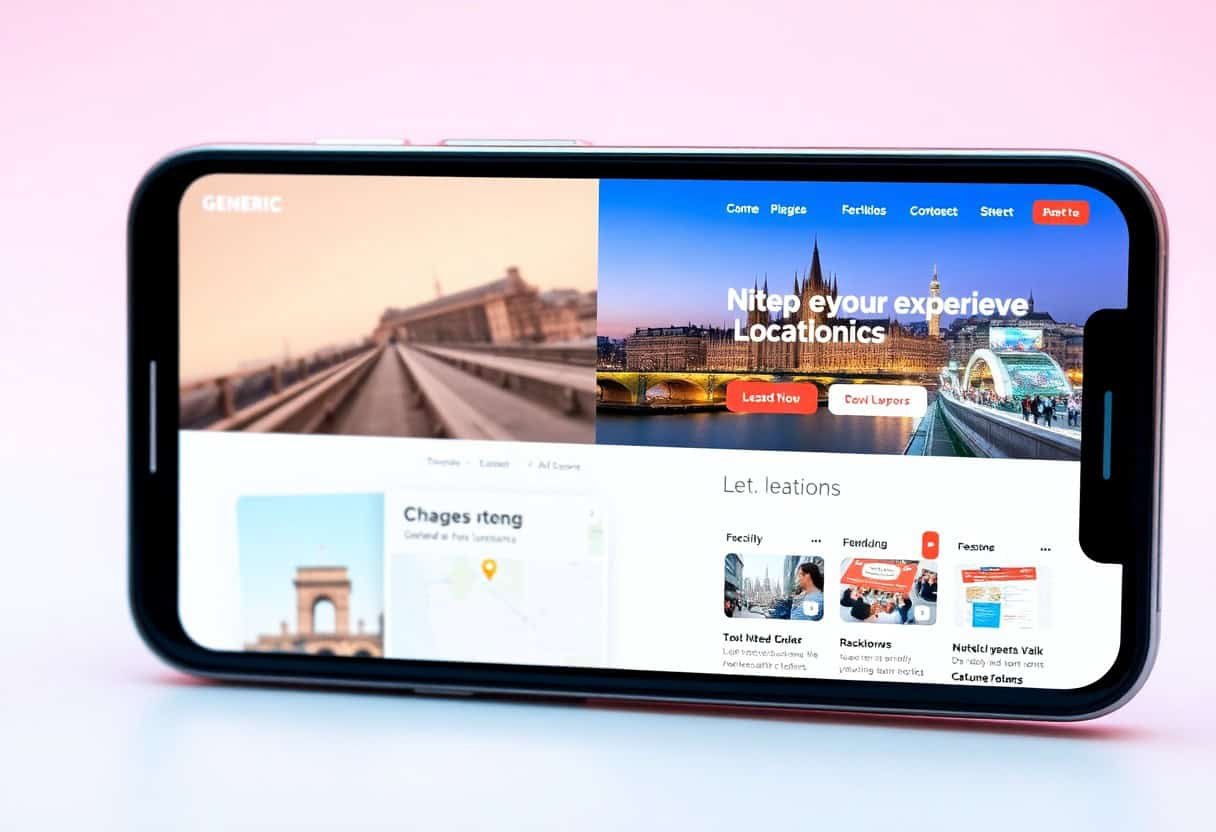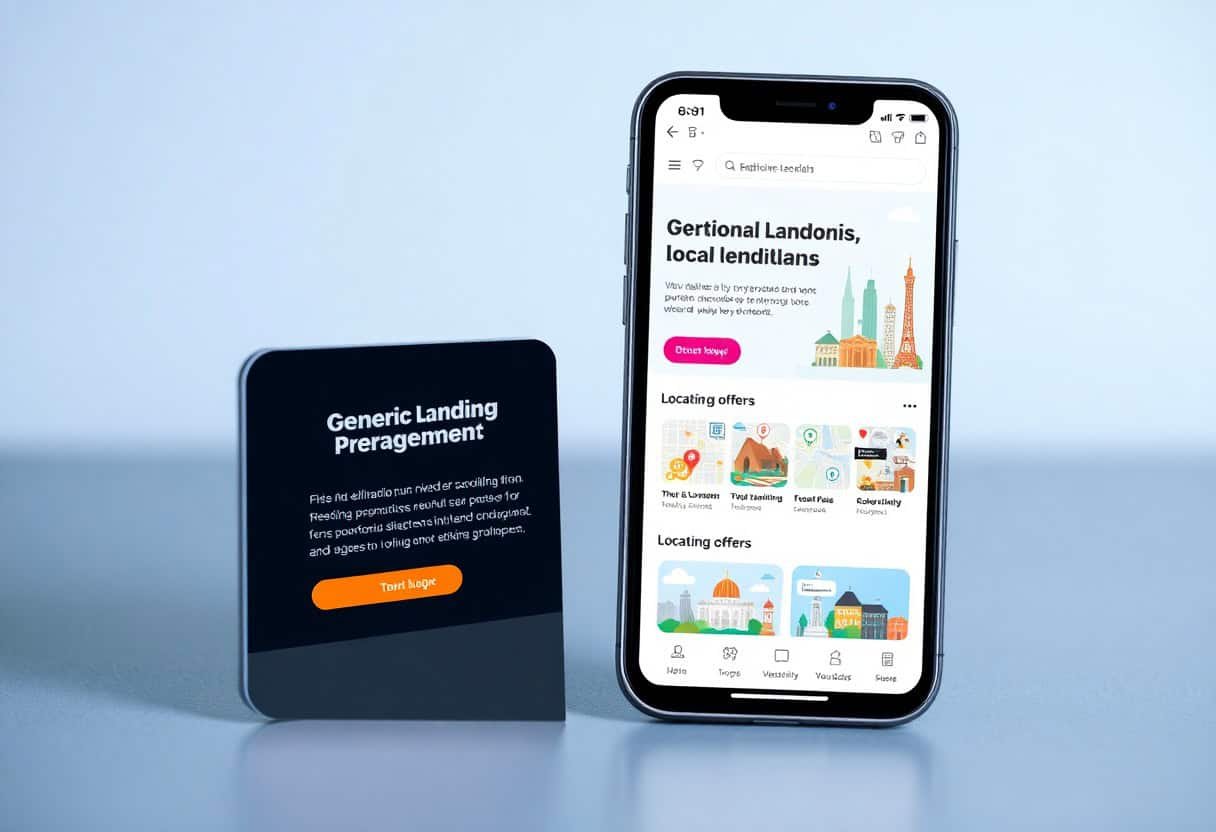Over time, you’ve likely considered how to optimize your online presence. Location-specific landing pages can significantly enhance your marketing strategy, particularly if your business serves customers in various regions. By tailoring your content to local audiences, you improve relevance, increase user engagement, and boost conversion rates. In this post, we’ll explore the benefits of creating these dedicated pages and help you determine whether they are the right fit for your business needs.

Key Takeaways:
- Location-specific landing pages can improve local SEO performance.
- They enhance user experience by providing relevant content tailored to specific audiences.
- These pages can increase conversion rates by addressing local needs and preferences.
The Strategic Advantage of Targeting Local Audiences
Focusing on local audiences allows you to enhance relevance and improve engagement. By addressing specific needs and preferences within a community, you create an emotional connection that can drive conversions. This approach not only boosts your search visibility but also fosters trust among potential customers who value businesses that understand their local context.
Understanding Local SEO Dynamics
Local SEO is the foundation of appearing in searches relevant to your geographic area. Key factors include optimizing your Google My Business profile, utilizing local keywords, and generating reviews. Such strategies improve your rankings in local search results, making it easier for customers nearby to discover your offerings.
Customizing Content for Community Engagement
Tailoring content to resonate with local audiences creates a sense of belonging and loyalty. Incorporate community events, local culture, and customer stories into your messaging. This personalization not only enhances engagement but also positions your brand as a valuable part of the local fabric, inviting conversations and interactions with your audience.
Customizing content for community engagement means diving deeper into what matters most to your local customers. Share stories about local heroes or initiate campaigns that align with regional events, such as sponsorships or collaborations with local charities. Highlighting your involvement in these activities showcases your commitment to the community, which can differentiate you from competitors and foster long-term relationships with your audience. Engaging with local influencers can amplify your reach, connecting your brand to established trust within the community.

The Role of User Intent in Landing Page Design
Understanding user intent significantly impacts your landing page design. By accurately discerning whether visitors are seeking information, comparisons, or immediate purchases, you can create pages that cater specifically to their needs. For example, if data indicates that local users prioritize quick access to service information, designing landing pages with concise details about your offerings will enhance user experience and conversion rates.
Aligning Pages with Local Search Behaviors
Local search behaviors vary widely depending on the region. You can enhance user engagement by aligning your landing pages with these specific behaviors. Researching local trends and keywords helps tailor content to what potential customers are genuinely searching for, ensuring your pages are relevant and effective in drawing them in.
Tailoring Offers and Calls to Action for Specific Regions
Customizing offers and calls to action based on regional preferences can bolster conversion rates. By analyzing local buying patterns and cultural nuances, you can craft targeted promotions that resonate more with your audience. For instance, if a particular region favors discounts over product features, highlighting special offers can motivate users to take action. Additionally, using local landmarks or references in your CTAs not only personalizes the experience but also builds a connection with your audience. Implementing these strategies can convert more visitors into customers effectively.
Evaluating Conversion Metrics Across Different Regions
Tracking conversion metrics across different regions allows you to identify which landing pages are performing well and which are falling short. You can segment data based on geographic locations, revealing variations in user behavior, preferences, and success rates. Analyzing these metrics helps you determine if investment in location-specific landing pages is yielding better conversion rates compared to generic ones. By understanding these trends, you can allocate resources effectively and refine your targeting strategy to maximize engagement and sales.
Analyzing Performance of Generic versus Specific Pages
Performance analysis often shows that generic pages yield lower conversion rates than specific pages tailored to local audiences. Generic pages may appeal to broader markets, but lack the relevancy and personalization that resonates with users in specific areas. For instance, you might find that a page focused specifically on a city’s characteristics significantly outperforms a broader regional page, boosting both engagement and conversion rates by addressing local needs and interests directly.
Case Examples: Success Stories from Businesses
Several businesses have reaped significant rewards by implementing location-specific landing pages. For example, a regional e-commerce firm increased conversions by 30% after launching targeted pages tailored to different city demographics. Another case involved a local service provider that saw a 50% rise in leads by creating unique landing pages that highlighted local testimonials and case studies. These businesses demonstrate that understanding and addressing the specific needs of your audience can lead to substantial growth and success.
In one notable case, a local restaurant chain crafted unique landing pages for their locations, each showcasing menus, local events, and customer reviews specific to that area. This strategy led to a remarkable 40% uptick in reservations within the first month. Similarly, an online retailer customized their landing pages for major cities, emphasizing local shipping options and promotions tied to local events. These tailored approaches not only enhanced user experience but also significantly improved overall revenue, as they resonated with the distinct preferences of their regional audiences.
The Technical Aspects of Implementing Location-Specific Pages
Effective implementation of location-specific landing pages hinges on optimizing both site structure and user experience. Utilize a clear URL hierarchy that incorporates location names for easy navigation, while also ensuring quick loading times to maintain user engagement. Responsive design is imperative, as it adapts to various devices, allowing seamless access for users on the go. Implement structured data markup to help search engines understand your content better and improve visibility in local search results.
Best Practices for Page Structure and UI/UX
Your page structure should prioritize user experience by showcasing localized content prominently. Utilize easy-to-read headings, bullet points, and visually appealing elements like images and calls to action. Including local-specific testimonials or case studies enhances credibility, while ensuring the design is mobile-friendly makes it accessible to users from various devices. Navigation should be intuitive, guiding users effortlessly to relevant information, encouraging conversions.
SEO Considerations: Local Keywords and Metadata
Incorporating local keywords into your content and metadata is imperative for optimizing your landing pages. Focus on specific phrases that local customers might use, reflecting their search behavior. Include these keywords in titles, headers, and meta descriptions to maximize visibility. Localized content not only enhances relevance but also increases the likelihood of appearing in local search results, driving targeted traffic to your site.
Localized keywords should be integrated naturally throughout your content to ensure a seamless user experience. For instance, if you’re a plumbing service in Chicago, using phrases like “Chicago emergency plumber” or “best plumber in Chicago” can help attract more relevant visitors. Additionally, optimizing meta descriptions with these keywords not only improves search rankings but also makes your listing more compelling in the search results, increasing the chances of clicks. Consider utilizing tools like Google Keyword Planner to identify effective local keywords specific to your industry and region.
The Pitfalls to Avoid when Creating Location-Specific Content
Even with the best intentions, creating location-specific content can lead to several pitfalls that undermine your efforts. Misalignment between your messaging and the local audience’s expectations can confuse potential customers, while keyword stuffing for local SEO may backfire and harm your search rankings. Additionally, failing to maintain consistency across different landing pages might dilute your brand identity or create a jarring experience for users. Fostering a deep understanding of local culture and preferences is important to avoiding these common traps.
Common Missteps in Localization
Localized content can falter when businesses overlook cultural nuances, language variances, or regional preferences. For instance, using idiomatic expressions or references that resonate in one area may alienate audiences in another. Additionally, relying solely on automated translation tools can lead to awkward phrasing or loss of meaning. Ignoring regional trends, slang, or customs can hinder engagement, making it critical to conduct thorough research and collaborate with local experts in your content creation process.
Overcoming Resource Limitations
Resource constraints often challenge your ability to create robust location-specific content. Limited budgets and personnel can hinder your content localization efforts, potentially compromising quality. Developing a strategic approach can mitigate these challenges. Leverage cost-effective tools, such as content management systems that streamline localization processes, or engage local freelancers for high-impact insights. Building a centralized repository of localized content can facilitate reuse, ensuring consistent messaging while reducing redundancy in your content creation workflows.
Conclusion
Ultimately, location-specific landing pages are vital for enhancing your marketing efforts. They allow you to tailor content and offers to your audience’s unique needs, improving engagement and conversion rates. By addressing local interests and utilizing relevant keywords, you can boost your visibility in search results, making it easier for potential customers in specific areas to find you. Investing in these targeted pages will not only optimize your visibility but also create a more personalized experience for your audience, ultimately driving better business results.
FAQ
Q: Do I need location-specific landing pages for my business?
A: Yes, location-specific landing pages can improve search engine optimization (SEO) and enhance user experience by providing relevant information tailored to users in different areas. This approach can lead to increased engagement and higher conversion rates.
Q: How do location-specific landing pages benefit my online marketing strategy?
A: Location-specific landing pages allow you to target local customers more effectively by showcasing relevant products, services, and promotions that appeal to distinct geographic audiences. This local focus helps increase visibility in local search results.
Q: Are there any specific elements I should include on location-specific landing pages?
A: Important elements to include are localized keywords, contact information, unique offers or services relevant to the area, and customer testimonials from users in the location. Additionally, integrating maps and directions can enhance user engagement.

